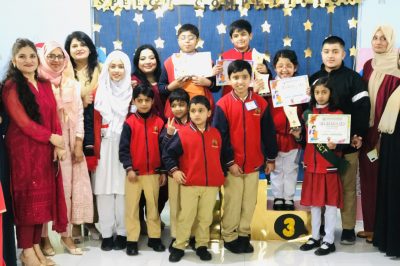On 24 February 2024, Mazen Schools Head Office hosted an Inter-School Speech and Painting Competitions, demonstrating the value of extracurricular activities in nurturing the holistic development of students. Held at Quaid Campus, Rawalpindi, the event brought together students from various campuses in Rawalpindi and Islamabad, offering them an opportunity to unleash their creativity and hone their public speaking skills.
In the fast-paced world of education, where academic achievements often take center stage, the significance of extracurricular activities cannot be overstated. As a jury member, I can’t help but reflect on my unforgettable moments and the significant impact extracurricular activities have had on my personal growth. In the early 1990s, my school, Sheri Public Schools in Faisalabad, held yearly “Baaz e Adab” cultural events in which we participated in various categories, such as poetry, art, drama, and speech.
The last time I competed in speech contests before relocating to Karachi was in 1998, when National Poet Nadir Jajvi gave me first place in the Urdu competition. These experiences gave me a stage to show my abilities and priceless life lessons that have shaped my path in diplomatic studies.
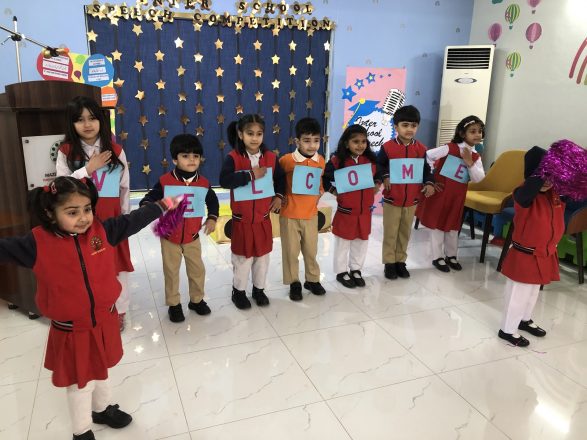
I believe traditional classroom learning undoubtedly forms the foundation of a student’s academic journey; it is through participation in extracurricular pursuits that individuals truly blossom and develop into well-rounded individuals. These events catalyze personal growth, fostering talent, confidence, and invaluable life skills among students.
In the Mazen Schools’ Inter-School Speech Competition in the English Speech Category, 32 students demonstrated their oratory skills, covering various topics from social challenges to personal reflections, captivating the audience with brilliance and enthusiasm. Similarly, another 32 students took the stage in the Urdu speech category, delivering speeches filled with emotion, wit, and depth, exploring themes of national identity, cultural heritage, and societal challenges.
With topics ranging from “If I Ruled the World for a Day” to “The Power of Positive Thinking,” students converged to exhibit creativity and enhance their oratory skills. From envisioning their ideal world to exploring the impact of social media, participants delved into thought-provoking subjects, demonstrating the depth of their perspectives and the breadth of their talents.

In the Urdu speech competition, students took a humorous approach to ” ہائے میرے سکول کا بستہ “(Oh My School Bag), playfully complaining about the burden of their hefty books and urging the management to reconsider. Another student passionately delved into میرا وطن میری پہچان (My Country is My Identity),” drawing inspiration from “اقبال کا مرد مومن” (Iqbal’s “Mard-e-Momin)” to reminisce about Pakistan’s struggle for independence, paying tribute to our forefathers.
Iqbal’s “Mard-e-Momin, referred to as a male believer in Allama Muhammad Iqbal’s poetry, is the one who has fully trained and formed himself. After completing the three stages of training and stability of self-control, obedience to God, and determining divine agency, he has attained the status of being the Ashraf al-Makhluqat and the Khalifa of Allah on earth.
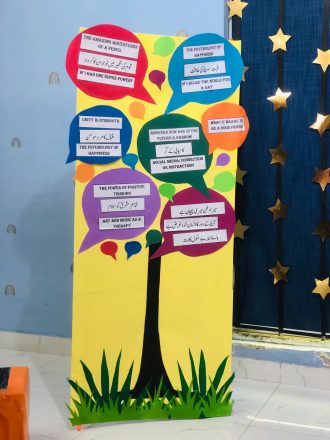
One particularly captivating speech centered on “ہزاروں خواہشیں ایسی کہ ہر خواہش پہ دم نکلے ” (Thousands of desires, each worth dying for), where students creatively expressed their silent desires, hoping for a world where every wish comes true. These speeches infused humor, patriotism, and imagination, captivating the audience with their unique perspectives.
In the painting competition, 52 students expressed their creativity on canvas, transforming their ideas and emotions into colorful artworks that spoke volumes about their imagination and artistic prowess.
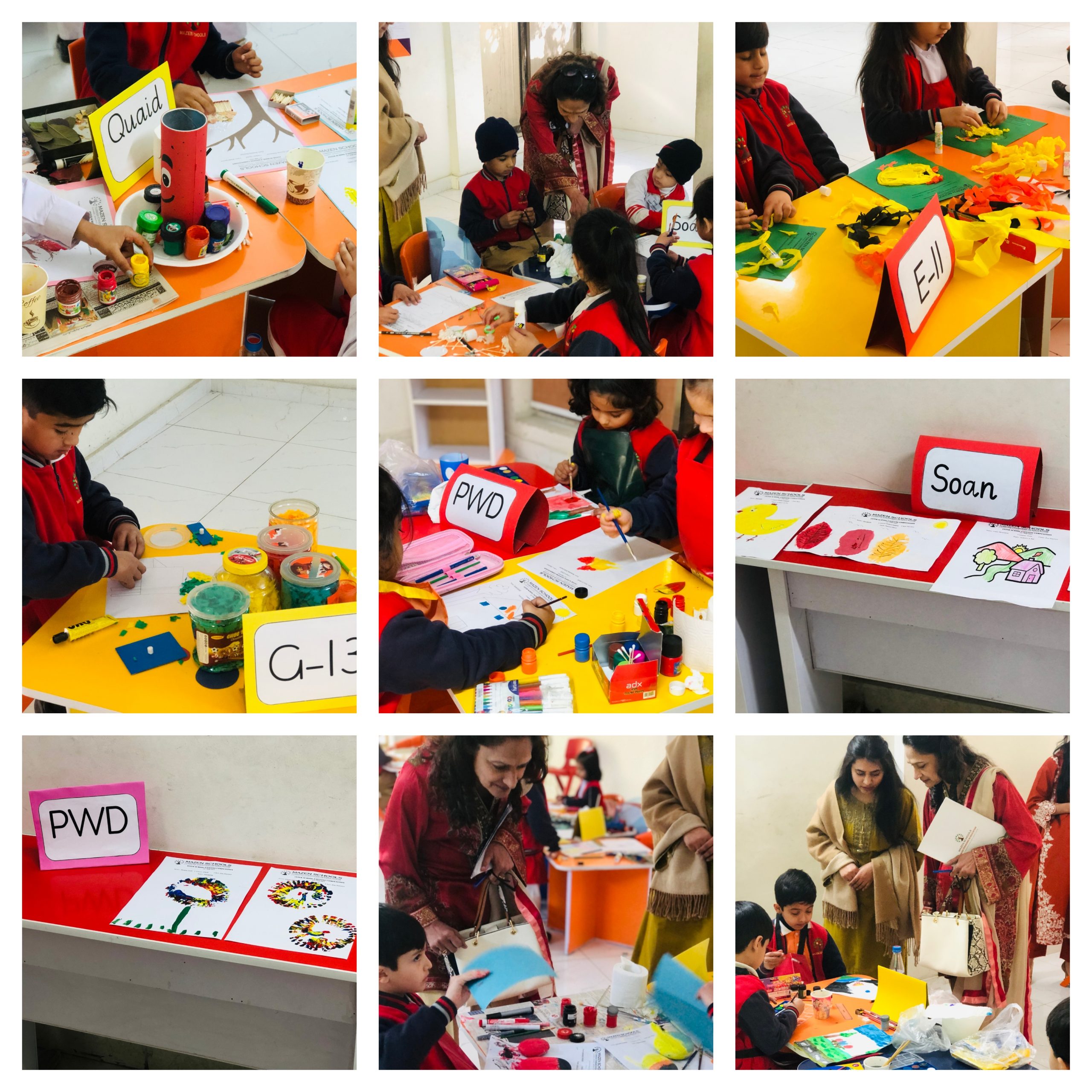
Amina Shabbir, Principal of Mazen School Quaid Campus, emphasizes the pivotal role of extracurricular activities in fostering holistic student development. Beyond academic confines, these activities unlock talents, instill vital life skills like collaboration and resilience, and nurture emotional intelligence. The Inter-School Competition, among other endeavors, provides a platform for students to showcase their abilities and gain recognition.
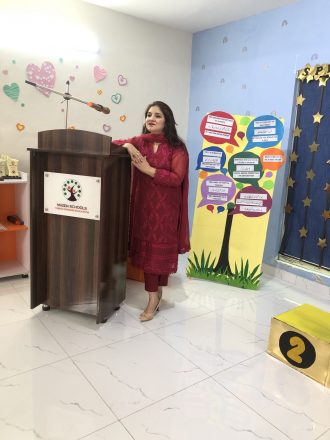
Shabbir highlights the correlation between extracurricular participation and academic success, citing research that links such engagement with heightened motivation, improved concentration, and superior time management. Ultimately, she underscores the significance of a balanced approach to education, blending academic rigor with diverse non-academic pursuits.
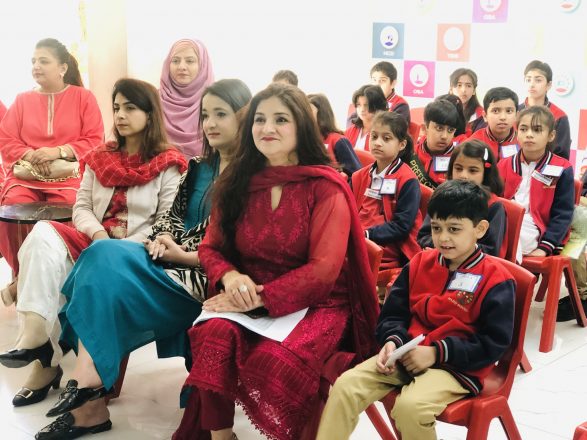
Extracurricular activities are pivotal in fostering students’ social and emotional well-being. In today’s digital age, where face-to-face interactions are often overshadowed by virtual communication, these activities provide much-needed opportunities for socialization and interpersonal connection.
Whether bonding with peers over shared interests, forming lasting friendships or learning to empathize with others through collaborative projects, students develop essential social skills crucial for building meaningful relationships and navigating diverse social contexts.
Additionally, participation in extracurricular pursuits has been linked to improved mental health outcomes, including reduced stress levels, increased self-esteem, and a greater sense of belonging and purpose.
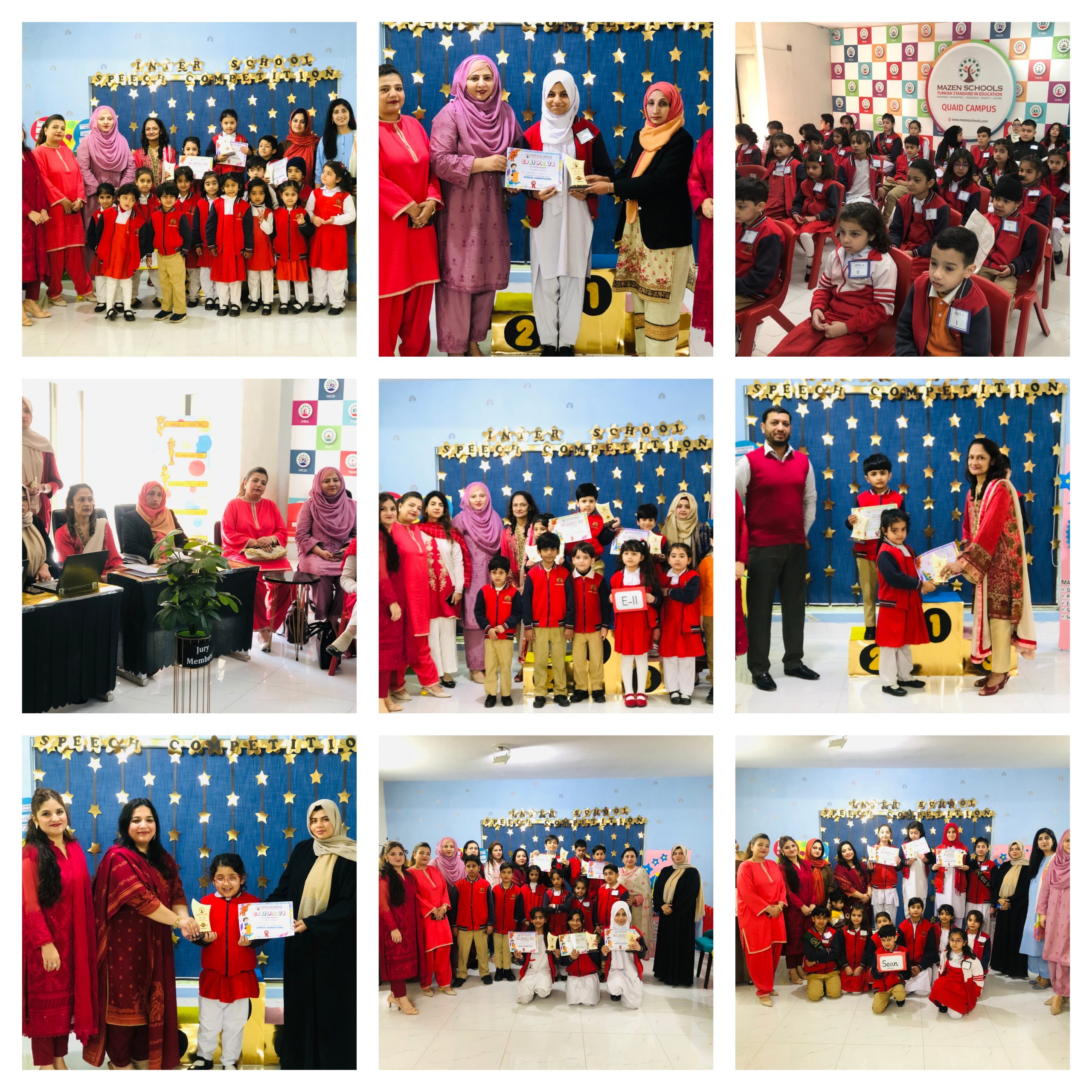
Beyond individual growth, extracurricular activities also contribute to the school culture and community. These activities foster students’ sense of belonging and camaraderie, promoting inclusivity, teamwork, and mutual respect.
Whether collaborating on a group project, cheering on teammates at a sports event, or volunteering together for a charitable cause, extracurricular activities create bonds beyond the classroom walls, fostering a supportive and vibrant school environment. They bring together students, teachers, and parents to celebrate shared achievements and talents.
The most exciting thing I saw was the unusual link of camaraderie among Mazen Schools campus employees. These experiences enhance personal networking and connectivity in their educational career, setting the stage for future professional and personal success.
Additionally, through collaboration on group projects, leadership roles, and overcoming obstacles in contests, teachers support their students in developing the resilience and adaptability needed to navigate the complexities of real-world situations.
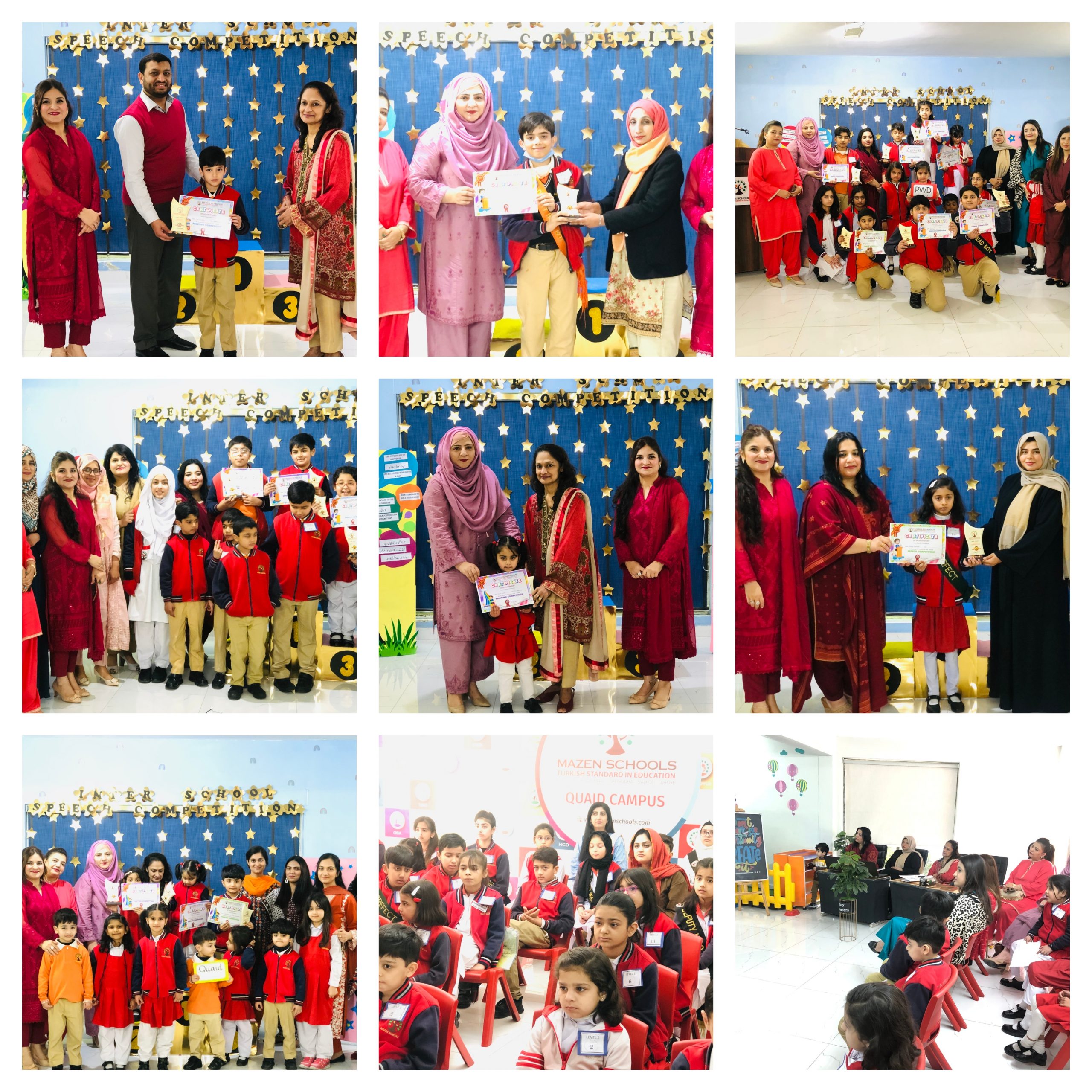
A sense of pride and solidarity is fostered within the educational ecosystem through events such as the Inter-School rivalry, which exhibits students’ extraordinary talent and creativity and encourages friendly rivalry and inter-school collaboration.
However, despite their myriad benefits, extracurricular activities often need to be more recognized and noticed in the educational discourse. In an era dominated by standardized testing and academic performance metrics, non-academic pursuits are sometimes perceived as extraneous or secondary to the core mission of education.
Yet, this narrow perspective must recognize the holistic nature of learning and development. Education is not just about acquiring knowledge; it’s about nurturing the whole individual—mind, body, and spirit.
Also Read: Climate change and artificial intelligence
One cannot understate the importance of extracurricular activities in students’ lives. These activities serve as a gateway to explore and cultivate interests beyond the confines of textbooks and classrooms. Whether participating in debates, sports, music, art, or community service, extracurricular activities provide students with a platform to discover their passions, hone their talents, and develop a sense of identity and purpose.
Furthermore, extracurricular activities serve as a vehicle for personal growth and self-discovery. Students can explore their interests, talents, and aspirations through these activities, thereby gaining a deeper understanding of themselves and their potential.
Whether it be discovering a hidden talent for painting, finding solace in music, or developing leadership skills through participation in student organizations, extracurricular activities empower students to chart their own paths and pursue their dreams.
Therefore, it is incumbent upon educators, policymakers, and parents alike to recognize and prioritize the importance of extracurricular activities in students’ lives. Schools should strive to create inclusive environments that offer diverse opportunities for students to explore their interests and talents.
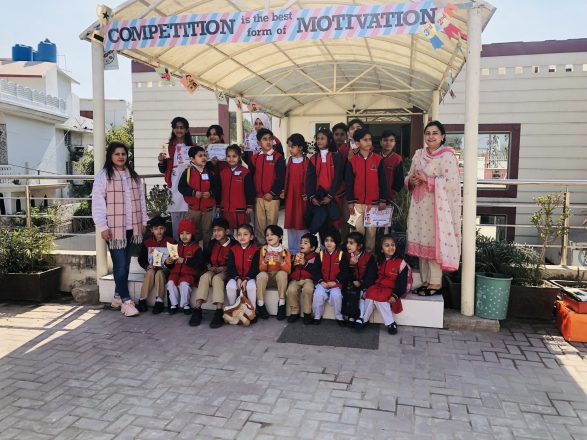
Likewise, parents and guardians should encourage their children to participate in extracurricular pursuits and support them in their endeavors. Whether it be through providing access to resources, funding, or mentorship, we must strive to ensure that every student has the opportunity to explore their passions, unleash their potential, and thrive in all aspects of their lives.
Extracurricular activities are vital in shaping students’ lives, enriching their educational experience, and preparing them for success in the 21st century. Extracurricular activities are not merely a supplement to academic education but an integral component of holistic development.
As we look to the future of education, let us ensure that extracurricular activities remain firmly entrenched in the fabric of school life, nurturing the talents and potential of every student.
International Relations Scholar interested in National Security strategies, with a good focus on Geo-Politics, Foreign Policy, and Public & Cultural Diplomacy.

